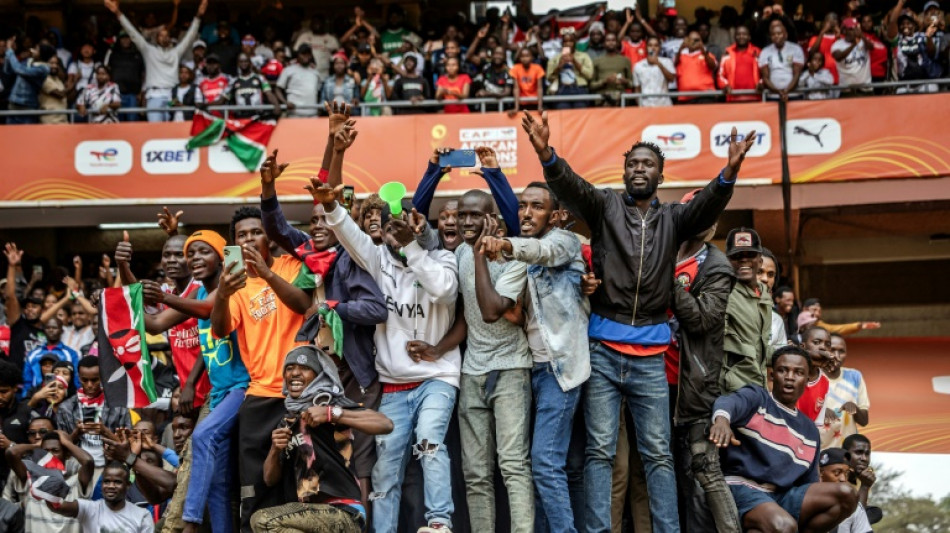

After deadly protests, Kenya's Ruto seeks football distraction
Whether in a sports jersey or a suit, Kenyan President William Ruto is casting himself as a model supporter of the national football team as an international tournament provides respite from recent bloody protests against his regime.
In June and July, the east African country, usually known as a beacon of calm in the turbulent Horn of Africa region, saw violent anti-government protests that left 65 dead, according to a police watchdog.
While the protests have disappeared from the streets, many of the issues -- police brutality, a troubled economy -- have not.
But thanks to football, public anger against Ruto's administration seems to be fizzing out.
Kenya is co-hosting the African Nations Championship (CHAN), with its national team winning both on and off the pitch -- a stark contrast to their historically dismal performance -- while Ruto coattails on their success at every turn.
He was in the stands cheering their inaugural game and in the dressing room making promises to the players.
At the start of the tournament, he promised each Harambee Stars player, as the national team is called, one million Kenyan shillings (about $7,740) for every win, and half that for a draw.
He later raised the reward to 2.5 million shillings plus a two-bedroom house if they beat Zambia in Sunday's quarter-finals.
Ruto's strategy appears to be paying off.
While public gatherings for months were dominated by "Wantam" chants -- to mean he will be a one-term president -- energetic Kenyan fans are now filling stadiums with "One Million" shouts, referencing the presidential bonuses.
"Most people are happy that the national team has been rewarded for their performance," Bernard Ndong, sports editor and anchor at one of Kenya's biggest stations, told AFP.
But not everyone was convinced by Ruto's sudden, and generous, attitude to the players, he added.
"Some skeptics are wondering where that money is coming from and whether it's also a subtle way for him to endear himself to the people through football."
Just a few weeks before the CHAN games kicked off, Ruto called on police officers to shoot and maim violent protesters, remarks that sparked public outrage.
- 'Soft-power tactics' -
But the tournament now "offers Ruto respite" even as his administration faces allegations of other "mega corruption scandals," observed a column in the Standard, a daily critical of the president.
According to analyst Chris Sambu, CHAN "is not just a sporting event; it is a calculated opportunity where soft-power tactics, national pride, and targeted public engagement intersect to blunt criticism and reopen channels of support."
It offers Ruto a strategic opening to reposition his image and tie it to moments of pride and economic hope, rather than recent political controversies, Sambu said on X.
Enthusiastic Kenyan fans without tickets have breached security to enter stadiums, angering the Confederation of African Football (CAF) and resulting in hefty fines for the country.
Ruto has promised to install screens around the city so everyone can watch the games.
"It is the Harambee Stars who have reunited the nation," he said to the players on Monday.
"I am proud that thanks to your talents, the nation stands tall, united, and inspired."
"Sport and politics are powerful tools," Ruto supporter Amina Muchiri, 44, told AFP, adding that after a shake-up by the youth-led protests "this is the best chance to get to them through these boys who are also Gen-Z".
Elias Makori, a former sports editor at Kenya's Nation newspaper and now on the CHAN committee, judged it a "clever" move by Ruto.
"It's a good comeback against the Gen Z unrest, but how long it can be sustained is another question," Makori added.
The CHAN is limited to players from domestic national leagues, unlike the African Cup of Nations which is open to Africans playing for clubs abroad.
G.Wagner--NRZ



